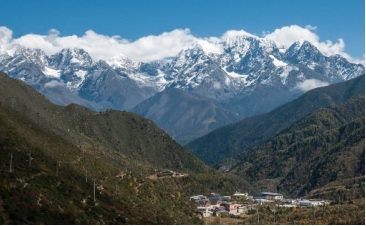For us a new battle was unfolding. We called it the Battle of Supplies. Banks were closing, paper currency was depleted, and there was a lack of supplies. There were months when we had very little to live on, but God provided in an amazing and humbling way. One day, I was coming from the town, when I met a Tibetan woman and her daughter whom we had once treated with medicine. She smiled while greeting me and brought out from under the fold in her dress five eggs and gave them to me with a hug. That was so precious, as it was next to impossible to buy eggs or meat. At times, we traded clothes or rice for milk, eggs, and butter. May 17, 1950 was a red-letter day for us as we were able to get some green cabbage. This was the first green vegetable we had tasted in many months and a special treat. It didn’t grow in our area because of the high altitude. Under the new government, restrictions increased and the church was scattered. These were times of discouragement, but God had ways of speaking to me. One day I read the following words: “Things are sure to happen which drain the heart of human hope but the hallmark of a true missionary is refusal to be weakened or hardened or soured or made hopeless by disappointment.” I was burdened for my own family back in North America, but as I prayed God gave me assurance that He would answer. A short time later I received a letter telling me that my sister and her husband had given their lives to Jesus. My discouragement was replaced with joy.
From the stories of Edie Shingler’s life on the Tibetan border. Edith Seager joined WEC in 1945 and married Ernie Shingler in India in 1954. She passed on to her reward in 2007

